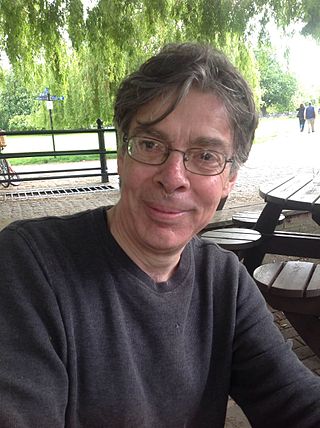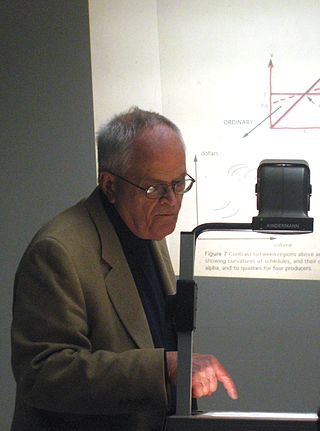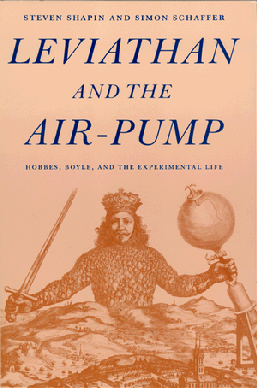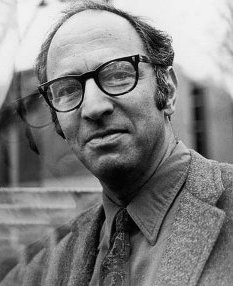The scientific community is a diverse network of interacting scientists. It includes many "sub-communities" working on particular scientific fields, and within particular institutions; interdisciplinary and cross-institutional activities are also significant. Objectivity is expected to be achieved by the scientific method. Peer review, through discussion and debate within journals and conferences, assists in this objectivity by maintaining the quality of research methodology and interpretation of results.

Science studies is an interdisciplinary research area that seeks to situate scientific expertise in broad social, historical, and philosophical contexts. It uses various methods to analyze the production, representation and reception of scientific knowledge and its epistemic and semiotic role.
William Julius Wilson is an American sociologist, a professor at Harvard University, and an author of works on urban sociology, race, and class issues. Laureate of the National Medal of Science, he served as the 80th President of the American Sociological Association, was a member of numerous national boards and commissions. He identified the importance of neighborhood effects and demonstrated how limited employment opportunities and weakened institutional resources exacerbated poverty within American inner-city neighborhoods.

Big science is a term used by scientists and historians of science to describe a series of changes in science which occurred in industrial nations during and after World War II, as scientific progress increasingly came to rely on large-scale projects usually funded by national governments or groups of governments. Individual or small group efforts, or small science, are still relevant today as theoretical results by individual authors may have a significant impact, but very often the empirical verification requires experiments using constructions, such as the Large Hadron Collider, costing between $5 and $10 billion.

The sociology of scientific knowledge (SSK) is the study of science as a social activity, especially dealing with "the social conditions and effects of science, and with the social structures and processes of scientific activity." The sociology of scientific ignorance (SSI) is complementary to the sociology of scientific knowledge. For comparison, the sociology of knowledge studies the impact of human knowledge and the prevailing ideas on societies and relations between knowledge and the social context within which it arises.
The strong programme or strong sociology is a variety of the sociology of scientific knowledge (SSK) particularly associated with David Bloor, Barry Barnes, Harry Collins, Donald A. MacKenzie, and John Henry. The strong programme's influence on science and technology studies is credited as being unparalleled. The largely Edinburgh-based school of thought aims to illustrate how the existence of a scientific community, bound together by allegiance to a shared paradigm, is a prerequisite for normal scientific activity.
S. Barry Barnes was Professor of Sociology at the University of Exeter.

Barrington Moore Jr. was an American political sociologist, and the son of forester Barrington Moore.

Theda Skocpol is an American sociologist and political scientist, who is currently the Victor S. Thomas Professor of Government and Sociology at Harvard University. She is best known as an advocate of the historical-institutional and comparative approaches, as well as her "state autonomy theory". She has written widely for both popular and academic audiences. She has been President of the American Political Science Association and the Social Science History Association.

The Erasmus Prize is an annual prize awarded by the board of the Praemium Erasmianum Foundation to individuals or institutions that have made exceptional contributions to culture, society, or social science in Europe and the rest of the world. It is one of Europe's most distinguished recognitions. The prize is named after Desiderius Erasmus, the Dutch Renaissance humanist.
Neil Joseph Smelser (1930–2017) was an American sociologist who served as professor of sociology at the University of California, Berkeley. He was an active researcher from 1958 to 1994. His research was on collective behavior, sociological theory, economic sociology, sociology of education, social change, and comparative methods. Among many lifetime achievements, Smelser "laid the foundations for economic sociology."

Simon J. Schaffer is a historian of science, previously a professor of the history and philosophy of science at the Department of History and Philosophy of Science at the University of Cambridge and was editor of The British Journal for the History of Science from 2004 to 2009.
Gary Alan Fine is an American sociologist and author.

Harrison Colyar White was an American sociologist who was the Giddings Professor of Sociology at Columbia University. White played an influential role in the “Harvard Revolution” in social networks and the New York School of relational sociology. He is credited with the development of a number of mathematical models of social structure including vacancy chains and blockmodels. He has been a leader of a revolution in sociology that is still in process, using models of social structure that are based on patterns of relations instead of the attributes and attitudes of individuals.
The Merton thesis is an argument about the nature of early experimental science proposed by Robert K. Merton. Similar to Max Weber's famous claim on the link between Protestant work ethic and the capitalist economy, Merton argued for a similar positive correlation between the rise of Protestant Pietism and early experimental science. The Merton thesis has resulted in continuous debates.

Lorraine Jenifer Daston is an American historian of science. She is director emerita of the Max Planck Institute for the History of Science (MPIWG) in Berlin, visiting professor in the Committee on Social Thought at the University of Chicago, and an authority on early modern Europe's scientific and intellectual history. In 1993, she was named a fellow of the American Academy of Arts and Sciences. She is a permanent fellow at the Berlin Institute for Advanced Study.

Leviathan and the Air-Pump: Hobbes, Boyle, and the Experimental Life is a book by Steven Shapin and Simon Schaffer. It examines the debate between Robert Boyle and Thomas Hobbes over Boyle's air-pump experiments in the 1660s. In 2005, Shapin and Schaffer were awarded the Erasmus Prize for this work.

Michèle Lamont is a Canadian sociologist who is the Robert I. Goldman Professor of European Studies and a professor of Sociology and African American Studies at Harvard University. She is a contributor to the study of culture, inequality, racism and anti-racism, the sociology of morality, evaluation and higher education, and the study of cultural and social change. She is the recipient of the Gutenberg Award and the Erasmus award, for her "devoted contribution to social science research into the relationship between knowledge, power, and diversity." She has received honorary degrees from five countries. and been elected to the British Academy, Royal Society of Canada, Chevalier de l’Ordre des Palmes académiques, and the Sociological Research Association. She served as president of the American Sociological Association from 2016 to 2017. In 2024, she was elected to the American Philosophical Society.

Thomas Samuel Kuhn was an American historian and philosopher of science whose 1962 book The Structure of Scientific Revolutions was influential in both academic and popular circles, introducing the term paradigm shift, which has since become an English-language idiom.
Uğur Ümit Üngör is a Dutch–Turkish academic, historian, sociologist, and professor of Genocide studies, specializing as a scholar and researcher of Holocaust studies and studies on mass violence. He served as Professor of History at the Utrecht University and Professor of Sociology at the NIOD Institute for War, Holocaust and Genocide Studies.












